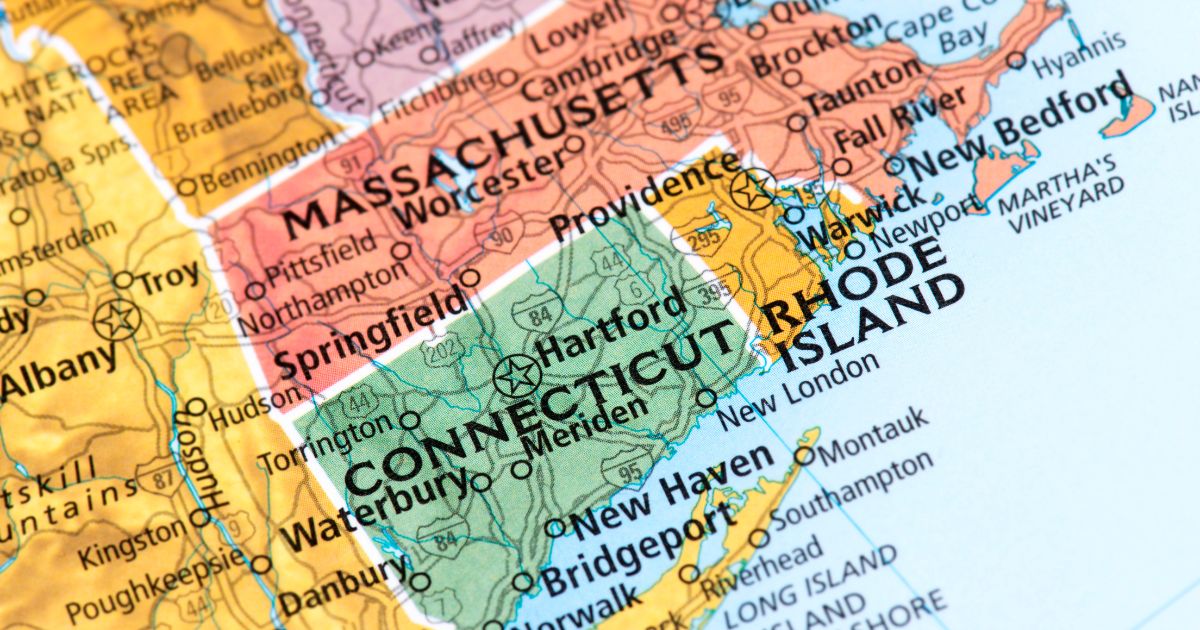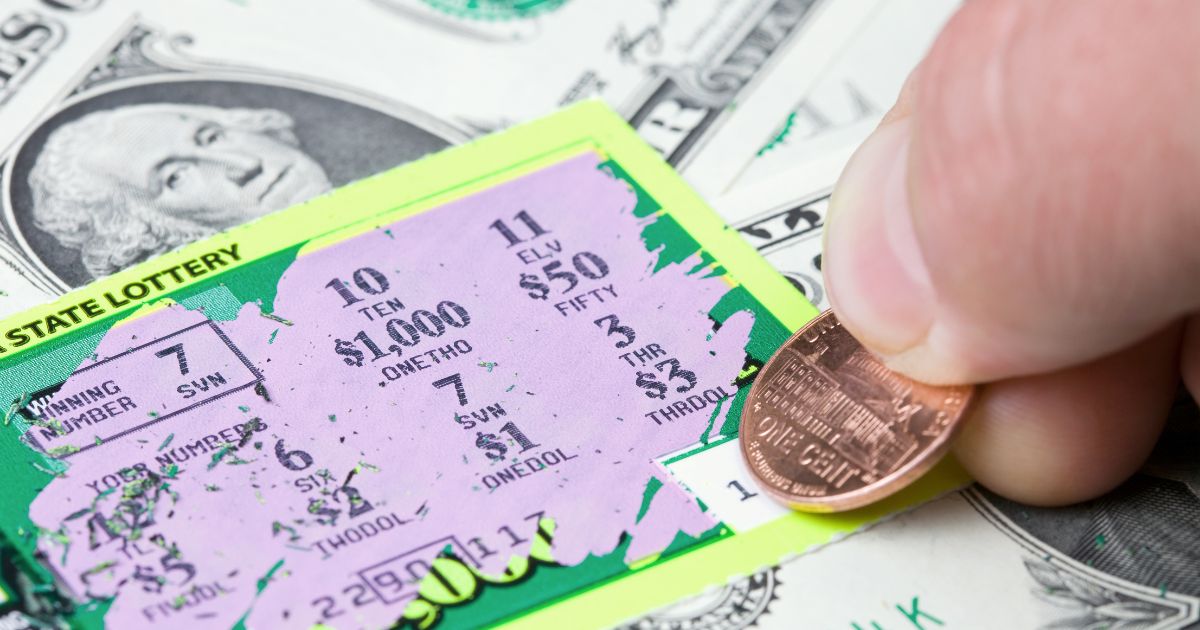Is Gambling Legal in Connecticut? A 2025 Comprehensive Guide

Is Gambling Legal in Connecticut?
Yes, Connecticut allows gambling in the form of online casinos, online sportsbooks, and lotteries.
The Department of Consumer Protection (DCP) regulates the state’s gambling market. Connecticut legalized two tribal casinos, namely the Foxwoods Resort Casino and Mohegan Sun. These two tribal casinos are allowed to offer slots, poker, and other table casino games.
Moreover, Connecticut is one of the states where sports betting is legal. Connecticut sports betting is flourishing, to say the least.
Gambling in this state is still evolving, especially online casinos. Online gambling laws in the United States is a patchwork of evolving regulations. We enumerated several key terms to help you understand Connecticut’s gambling scene:
- Department of Consumer Protection (DCP): DCP’s Gaming Division enforces Connecticut’s gambling regulations.
- Geolocation technology: Verifies the physical location of bettors. Geolocation is essential for online casinos and sportsbooks.
- iGaming: Refers to digital or online forms of gambling.
- Responsible gambling: Practices to protect bettors from gambling addiction. These include self-exclusion options and deposit limits.
- Traditional casino: Gambling activities done in a brick-and-mortar casino. These include slots, roulette, blackjack, poker, and bingo.
- Tribal state compact: Legal agreement between local tribes and a state. In gambling, this agreement allows tribes to operate regulated casino activities.
We’ll delve more into Connecticut’s casino and gaming industry in the following section.
Historical Background of Gambling in Connecticut
Connecticut’s gambling stance went through legalization challenges early on. Then, major legalizations were passed, along with the 2018 PASPA ruling. All these contributed to the thriving nature of Connecticut gambling today.
To give you a clearer picture, here’s a historical timeline of gambling in Connecticut:
- 1939: Connecticut legalized charitable bingo. Its priority is to raise funds for charitable and religious organizations.
- 1955: Introduction of luck-related activities like raffles and bazaars.
- 1971: Governor Thomas J. Meskill signs Public Act No. 865. This was known as the Connecticut Lottery.
- 1972: The Connecticut Lottery began operations across numerous locations. Lottery sales were directed to educational and charitable causes.
- 1976: Off-track betting (OTB) became legal in Connecticut. This regulation covered both horse racing and jai alai. Locations for jai alai opened in Hartford and Bridgeport.
- 1987: The state began to sell “sealed tickets”. People acquire prizes through winning combinations in the tickets.
- 1988: The US Congress passes the Indian Gaming Regulatory Act. This helped proliferate tribal casinos across the country.
- 1992: Connecticut signs deals with Mashantucket Pequot and Mohegan Tribes. These compacts helped open the Foxwoods Resort Casino and the Mohegan Sun.
- 2003: The “Las Vegas Nights” statute was repealed. This was an initiative to manage the increasing gambling operations in the state. It moderated the growth surge of both the Foxwoods Casino and Mohegan Sun.
- 2018: The Professional and Amateur Sports Protection Act (PASPA) was overturned. PASPA, a federal law, previously prohibited states from legalizing sports betting.
- 2021: The Connecticut sports betting industry was finally legalized. This made sports betting legal on both online and retail.
Of course, gambling regulations are evolving as we speak. Just recently, Connecticut lawmakers enforced advertisement restrictions on gambling activities. We recommend constantly checking the state’s regulations on casino and sports betting.

Types of Legal Gambling in Connecticut
Let’s delve deeper into the types of legal gambling offered in Connecticut.
Casinos and gaming resorts
There are two major casinos in the Constitution State. The Foxwoods Resort Casino is located in Ledyard. On the other hand, you can find the Mohegan Sun at Uncasville.
These two casinos offer a wide range of gaming and entertainment experiences. Here are several examples:
- Classic and video slot machines
- Table games like blackjack, poker, roulette, and craps
- Poker rooms for tournaments and cash games
- Major concerts and live shows
- Dining and shopping options
Tribal casinos are also permitted to offer both online and retail sports betting. We’ll discuss more of sports betting in the following sections.
Lotteries and scratch-off tickets
State lottery is also legal in Connecticut. Supervised by the Connecticut Lottery Corporation, state lottery was first established in 1972.
The Connecticut lottery offers a variety of games to the public. Take a look:
- Draw games such as Powerball, Mega Millions, and Lotto
- Daily games like Play3 and Play4
- Instant games like scratch-off tickets
- Keno games with a set of 20 winning numbers
Lottery tickets are more accessible to the public. They can purchase tickets in convenience stores, supermarkets, or even gas stations.
Bettors can also buy lottery tickets online. CT Lottery’s official website allows people to bet on iLottery games.

Online gambling and sports betting
In Connecticut, there has always been an interest in sports betting. They have prominent college teams, particularly the UConn Huskies. People want to place a wager or a bet on these college teams.
Eventually, the clamor turned in a good result. In 2021, Governor Ned Lamont signed the legislation to legalize online gaming and sports wagering. This further advanced online gambling offerings of the two local tribes.
The said legislation brought in online sportsbooks to the Connecticut sports betting scene. This formed partnerships along state lines, including the following:
- The Foxwoods Resort Casino brings in the DraftKings sportsbook.
- The Mohegan Tribe partners with the FanDuel sportsbook.
- The Connecticut Lottery Corporation teams up with PlaySugarHouse. However, CT Lottery eventually parted ways with PlaySugarHouse after 18 months.
People are permitted to place online bets on different sports wagering games. Here are the sports betting forms available on Connecticut’s sportsbooks:
- Single-game bets
- Parlays
- Prop bets
- Live betting
- Teasers
- Futures
Sports wagering is still growing in Connecticut. Just recently, CLC partnered with Fanatics Sportsbook. Expect other sportsbooks like BetMGM or Caesars to become available in this state.
This also spells a positive sign for those starting a sportsbook business. Just ensure to check each state’s law regulations on sports betting.
Charitable gaming (bingo, raffles)
Charitable gaming is one of the longest-tenured gambling form in Connecticut. These activities ultimately raise funds for nonprofit organizations. Naturally, states and countries all over the world prefer this type of gambling.
Currently, the DCP is in charge of regulating and providing charitable gaming permits. Here are charitable gaming forms that are allowed in Connecticut:
- Regular, pull-tab, and electronic bingo
- Cash, merchandise, and experience raffles
- Poker tournaments for charitable causes
- Sealed tickets at bingo halls
Organizers are required to follow DCP’s guidelines. That covers issuance of permits, operating procedures, and distribution of proceeds.
Horse racing and off-track betting
Connecticut started legalizing horse racing and off-track betting in the 1970s. Soon after, the state also allowed jai alai and dog racing. However, Connecticut doesn’t have active tracks for dog racing anymore.
Today, off-track betting is still a legal gambling form. This allows residents to place a wager on races, even if they’re not on the track. That is sensible, given that the state doesn’t have any live horse racing tracks.
If you’re interested, there are multiple Sportech off-track betting facilities across Connecticut. We enumerated several, for your reference:
- Bradley
- Hartford
- Manchester
- Milford
- New Britain
- Sports Haven
- Torrington
- Waterbury
There are also horse racing tracks you can find nearby Connecticut. Suffolk Downs had its last horse racing event in 2019. However, there are news of building a new track in Gardner.
Also, it won’t be a surprise if we see another track in Connecticut. Horse racing is still prominent in the US, especially during the Kentucky Derby.

Age Requirements for Gambling in Connecticut
Generally, the minimum legal gambling age in Connecticut is 18. This applies to physical and online casinos and state lotteries. For sports betting, the minimum legal gambling age is 21.
Violating this law could lead to penalties for both bettors and establishments.
- Fines: Monetary penalties for underage gamblers. Fines could also be imposed for minors who are present in betting facilities.
- Prohibition: Gambling prohibition for any person who permitted underage gamblers. They may not be allowed to enter gambling establishments.
- Legal action: This could be taken against any person who facilitates underage gambling.
Connecticut’s official website published these prohibitions against underage gambling.
Regulatory Bodies Governing Gambling in Connecticut
Regulatory authorities enforce policies on Connecticut’s gambling activities. There’s no federal law to adhere to anymore. However, establishments have to follow these regulatory bodies:
- Connecticut Department of Consumer Protection (DCP): The DCP oversees licensing and regulating policies. It also looks into complaints and issues between consumers and operators.
- Tribal gaming authorities: These are gaming commissions from recognized tribes. These are the Mashantucket Pequot and Mohegan Tribes. They ensure regulatory compliance of casinos in the state.
Moreover, other regulatory bodies can also influence gambling law enforcement. The National Indian Gaming Commission works with tribal gaming commissions. Also, the Connecticut Lottery Corporation (CLC) oversees all lottery games.
How to Gamble Responsibly in Connecticut
One important aspect of legal gambling is responsible practices. Regulatory bodies require operators to promote responsible gambling initiatives. These help players avoid gambling-related addiction and issues.
In Connecticut, these responsible gambling measures are observed:
- Self-exclusion: Players voluntarily ban themselves from participating in gambling. Self-exclusion is an initiative that’s practiced across the country.
- Support and counseling: The state offers helplines and counseling for gambling-related problems. Always check contact numbers on the Connecticut Problem Gambling Helpline.
- Tribal initiatives: Tribes provide public awareness campaigns and health partnerships. For example, the Mohegan tribes partnered with Yale University to combat problem gambling.
How to Start a Gambling Business in Connecticut
Starting a gambling business in Connecticut requires complying to these policies.
Obtaining licenses and permits
Unlicensed gambling operations are deemed illegal across many states. Only establishments with corresponding licenses are permitted to offer gambling activities.
Follow these steps if you’re starting an online casino or sportsbook:
- First, identify licensing requirements for the gambling forms you’ll offer. Check with DCP regarding casino, sports betting, and off-track betting requirements. For lottery license requirements, consult the CLC.
- Prepare the required documentation. Check time periods for each application process.
- Submit the requirements. Wait for the compliance review, as this might take some time.
The process doesn’t stop after obtaining your license. You might have to renew permits and comply with ongoing requirements.
Meeting financial and security standards
Financial and security checks are required when starting a legal gambling business. Consumer protection is the purpose of these background checks.
Regulatory bodies investigate these financial and security aspects:
Financial requirements:
- Proof of funds, including bank and financial statements
- Sufficient and sustainable capital requirements
- Bond requirements to ensure compliance with legislation policies
Security requirements:
- Random Number Generators (RNG) for online legal gambling
- Security protocols such as encryptions, firewalls, and anti-fraud measures
- Regular security audits to ensure customer protection
Establishing a business plan
A clear gambling business plan acts as your guidepost. This is an outline of your strategies, projections, and operational plans.
Moreover, investors always require a well-structured business plan. They want to see a direction, especially in the casino and betting industry.
Ensure that your business plan includes these elements:
- Executive summary: Short-term and long-term mission and goals
- Market analysis: Target market and competition
- Business descriptions: Unique products and services
- Operational plans: Equipment, facilities, and manpower
- Financial projections: Balance sheets, cash flow statements, and income statements
- Management: Hierarchy and qualifications of your management team

Marketing and promoting your gambling business
Marketing could make or break your gambling business. This industry is brimming with competitors, which makes marketing all the more important.
It’s important to leverage digital channels in your marketing strategy. This increases your visibility on social media, search engines, and email platforms. Of course, you can’t cross the line into illegal gambling advertising.
The betting industry comes with many forms of advertising regulation. Here are several gambling ads policies:
- Advertisements should not target minors or individuals with gambling addiction
- Advertisements should not mislead consumers
- Advertisements should include responsible gambling messages
Maximizing your marketing channels could be a challenge, though. After all, you’re already supervising your gambling operations. What other businesses do is outsource their marketing tasks to agencies.
Marketing agencies like Fortis Media have gambling-specific expertise. They have experience in boosting the presence of many casinos and sportsbooks. Plus, they have inside information on any changes in gambling regulations.
Conclusion
Connecticut’s gambling scene is surely on the rise. Legalizing sports betting could usher in more gambling forms in the state. This could generate more tax revenue, which is great for Connecticut’s economy.
Still, it’s important to note that regulations evolve. Adhering to these policies is essential when putting up a gambling business. The state of Connecticut is no exception.
FAQs
Can non-residents gamble online in Connecticut?
Yes, non-residents can place wagers online in Connecticut, as long as they physically located within state lines or borders. Non-residents can participate in online gambling and betting activities, granted that these are legalized by the Connecticut Department of Consumer Protection.
Do I have to pay taxes on gambling winnings?
Yes, the Internal Revenue Service (IRS) views gambling winnings as taxable income. Therefore, you have to pay taxes on winnings or profits from any gambling and betting activities. Typically, the tax percentage you owe depends your overall income and tax bracket.
Is hosting a private poker game legal?
Hosting a private poker game is legal if the setting includes small stakes, a private space, and the absence of any house edge or fees. Moreover, a private poker game should have no commercial intent or business profit motive. It should be a game between friends and acquaintances.
How do I verify a gambling site’s license?
To verify a gambling site’s license, you’re encouraged to identify the business’s license number and regulating authorities. You can do this by checking the website for logos or seals from the regulators. Then, you can contact the regulator to find out gambling website’s license status.
Read our other articles

Google March 2025 Core Update: iGaming Industry Impact with Real Cases


Benefits of Enterprise SEO: Why Large-Scale Businesses Need It


B2B SaaS SEO: Best Practices and Strategy for 2025






